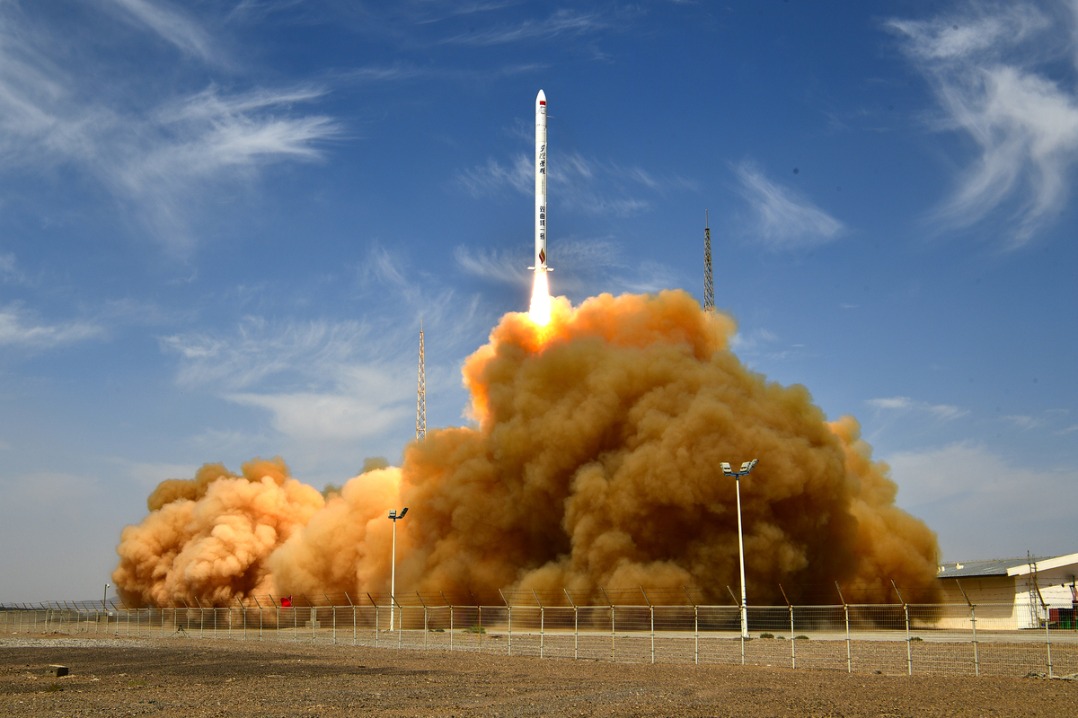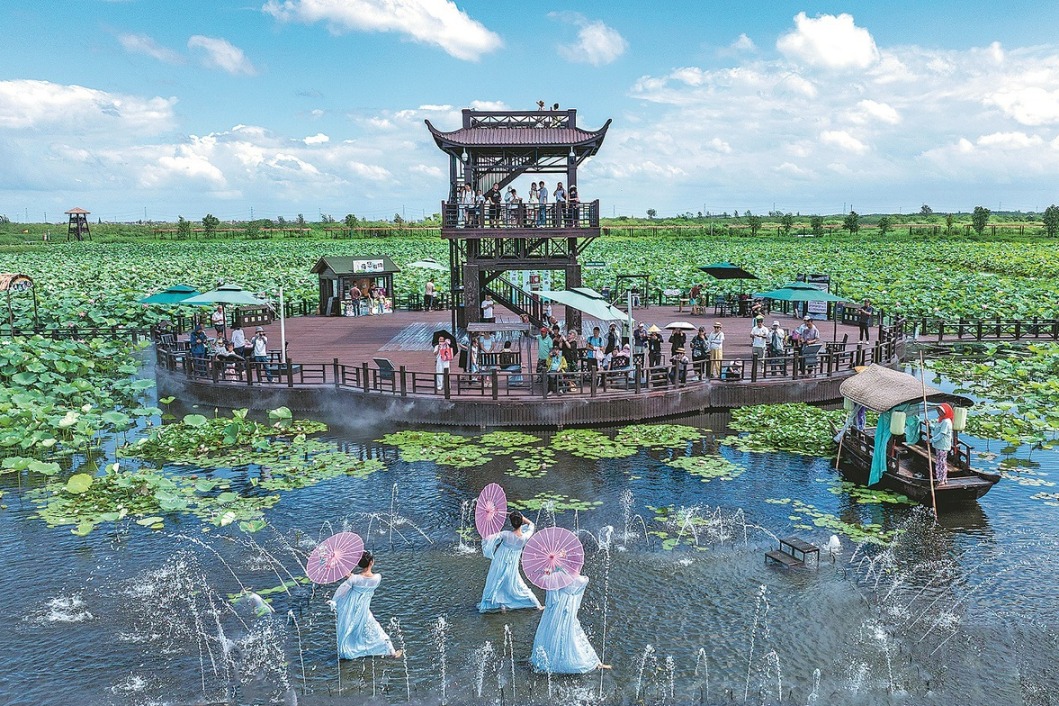Ecological renovation helps flow of tourists

YINCHUAN-Ma Bingfeng has been busy this summer, working at a hostel in the form of a traditional cave dwelling, in the Liupanshan Mountain area of Northwest China's Ningxia Hui autonomous region. Employed as a cleaner, kitchen helper and waitress, she has been able to boost her income.
"I work for the hostel near my home during the peak travel season in the summer. I earn 2,400 yuan ($351) a month, more than I earned from tending field crops in the past," says Ma.
Pengyang and nearby counties have seen a rural tourism boom since the Xihaigu area in central and southern Ningxia was lifted out of poverty.
"Rural tourism is a major economic development program in Pengyang, which is rich in natural features like waterfalls and terraced fields. Moreover, the county has a number of revolutionary sites," says Chen Zhenneng, a local official sent by Fujian province in East China as part of the pairing-up cooperation with Ningxia.
The main tourist attraction near the hostel where Ma works is a park listed in national tourism pamphlets for its panorama of terraced fields.
Locals used to call the place "the head of a monk" because it was barren, and "a waterless ditch "because it was so dry. For years, soil erosion and water scarcity were major problems in the area, impacting the daily lives of locals.
Farmers of the Liupanshan Mountain area used to spend most of their time looking for water to irrigate the arid land and supply their families with a meager ration of water. However, in recent years, this has all changed.
Designated as a pilot zone to promote the ecological protection and high-quality development of the Yellow River basin, Ningxia has been improving its landscapes through ecological restoration efforts. From 2016 to 2020, the area of Ningxia suffering from soil erosion dropped from 19,600 square kilometers to 15,700 sq km, according to official statistics.
With generations of effort and government investment, the hills in Xihaigu are becoming a showcase for ecological restoration and rural tourism.
Jia Tingmin, a former migrant laborer in Yuwa village, Pengyang county, returned home in 2015 to build cave dwellings for tourists after the local government started promoting tourism.
"All of my 20 cave dwellings are often booked up during the peak travel season," says Jia, who has been elected as a village cadre to lead locals in generating wealth.
The rural tourism boom in Pengyang helps to spur sales of local farm produce, as well as handicraft products, and thus boosts the incomes of locals.
Having played a major role in poverty alleviation, ecological protection and renovation remain priorities.
Zhang Huimin, an official in Longde county, which neighbors Pengyang, says the county has closed polluting factories and set up sewage-disposal centers to protect water resources.
"The wild ducks that had disappeared from the Yuhe River are returning," says Gao Junyuan, a local village official.
Xinhua
Today's Top News
- China and US agree to extend tariff rates after two-day talks in Stockholm
- US, China trade talks candid, in-depth, constructive, says China intl trade representative
- China unveils delegation for Chengdu World Games
- Xi urges youths to champion vision of peace
- All-out relief efforts underway in flood-hit regions
- Crucial to foster stable China-ROK ties: China Daily editorial






























